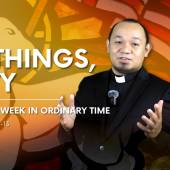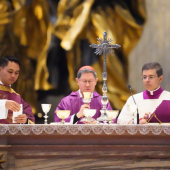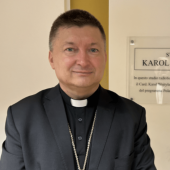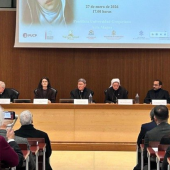Pope Francis: the pandemic calls for a culture of care
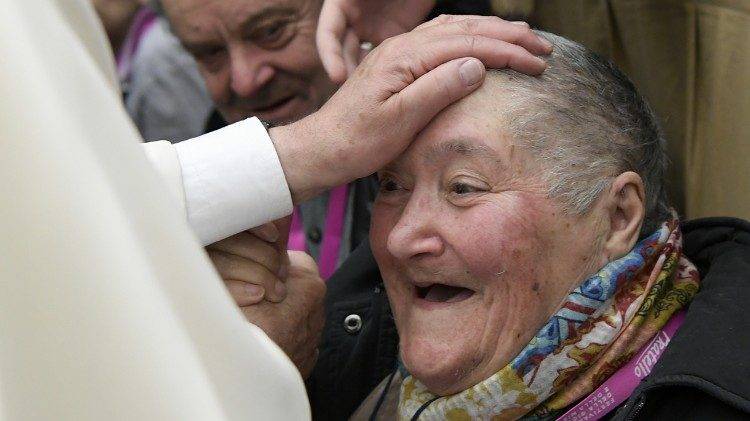
The Rome-based OSA Cooperative that it is active in sustaining home and institutional assistance for those in need, rehabilitation, hospital services and socio-welfare services, also produces a magazine informing readers, telling the stories of the people it assists. It is on these pages that Pope Francis offers a reflection and an invitation to promote a culture of care.
Tenderness
Highlighting the capacity and the need for “tenderness”, the Pope says tenderness not only indicates closeness, but through competence it calls for participation in the concrete lives of people. “It is a closeness understood as sharing, proximity, care and love. I hope that the great trial we experienced in the pandemic has made us long for a new closeness among us. A new tenderness.”
A focus on children and the elderly
The Pope then turns his attention to children and the elderly, "the main citizens of existential peripheries," of a society focused on productivity. "Their lives," he says, "are perceived as useless. Instead, he says, “I believe that the generational encounter between children and the elderly must be filled with a culture that knows how to bring together and integrate these fragilities." This, Pope Francis explains, "is a question of humanity".
Only when we will go back to caring, above all, for those on the margins, will we give a sign of true change, he adds. “When we work so that there will no longer be a generational conflict, so that we may find the courage to be together, the young and the old, only then will we experience a new quality of living in society.”
Looking, listening and caring
The OSA Cooperative assists people at home, in the intimacy of their homes. For the Pope, the home "is not simply a place, it is above all a relationship" that provides strength with which to face trials. "This does not mean," Francis explains, "that health care facilities are useless, but they must become the last resort in the experience of illness and suffering.” He praises the work carried out by OSA operators "because it makes the experience of pain and illness possible in an environment that is more welcoming, more human and more capable of humanizing a difficult time in life” that makes people feel “more alone, more misunderstood and more vulnerable." In light of his recent experience in the hospital, Francis suggests a few simple rules for health care workers in their endeavor to carry out their service and work in a humane way. "Look people in the eyes, consider them in their suffering without ever trivializing them," and listening to them so that "these people can entrust the suffering they live, the difficulties they have to someone." Finally, care "which should be translated into a way of offering help, support and professional services that is never violent, never predictable and never mechanical".
We all need a Cyrenian to help carry our Cross
The last question addressed to the Pope concerns pain and death. Francis emphasizes that even without naming Christ, it is impossible to ignore His experience. He recalls that often "speeches, rather than being of help or consolation, procure even more suffering," it is necessary "not to run away, to remain close" in moments of trial, "before the scandal of innocent pain, the scandal of the pain of a child." We must avoid the temptation to isolate ourselves, he says because "the more we suffer, the more we feel we also need a Cyrenian to help us carry our Cross".
“God always finds a way to make himself present within our lives, even when we feel he is far away or we feel abandoned. This is our strength. And even if we don't know it, Easter is already at work in that darkness. Only with time do we realize that there is a light hidden even in the deepest darkness. As we wait to realize this, the only way we can go forward is helping each other.”
"Thank you for what you do,” the Pope concluded, “because you help many people going through darkness to not feel alone, to not be discouraged, to be able to live face what they could never live and face alone.”
Radio Veritas Asia (RVA), a media platform of the Catholic Church, aims to share Christ. RVA started in 1969 as a continental Catholic radio station to serve Asian countries in their respective local language, thus earning the tag “the Voice of Asian Christianity.” Responding to the emerging context, RVA embraced media platforms to connect with the global Asian audience via its 21 language websites and various social media platforms.









